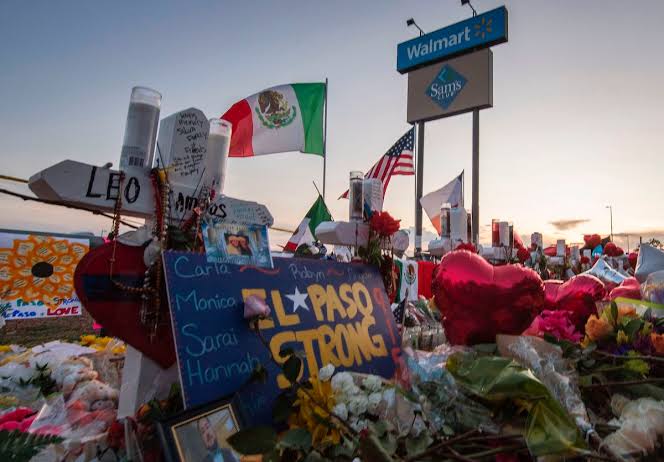USA Government and media fail to address real extremist threats

On New Year’s Day, two acts of terror unfolded that sent shockwaves through the American public. In New Orleans, Shamsud-Din Jabbar reportedly drove a rented truck down Bourbon Street, killing 15 and injuring 35.
An ISIS flag found in his vehicle left little doubt about his motives. Hours later, in Las Vegas, a rented Tesla Cybertruck exploded outside the Trump Las Vegas Hotel.
The driver, Matthew Alan Livelsberger, a 37-year-old active-duty US Army Special Forces intelligence sergeant, was the sole casualty.
These incidents, occurring during a season meant for celebration, highlight the vulnerability of the nation and the potential for violent extremism to rear its head.
The loss of life in New Orleans is a tragedy that demands serious reflection. Yet, the government’s and media’s responses to these attacks reveal troubling inconsistencies, raising questions about their commitment to addressing the real threats facing the nation.
In the immediate aftermath of the New Orleans attack, the FBI’s Assistant Special Agent in Charge, Alethea Duncan, held a press conference that can only be described as a disaster. Despite the discovery of an ISIS flag, Duncan declared, “This is not a terrorist event.”
The statement left many Americans incredulous, sparking widespread criticism online.
Similarly, the media coverage of the attacks reflected a rushed and deeply flawed narrative. Headlines like “New Orleans attack and Vegas explosion highlight extremist violence by active military and veterans” from Newsday and “New Year’s attacks fuel fears of extremism in military” from The Hill immediately framed the incidents through the lens of military extremism.
The fact that both perpetrators had served at Fort Liberty seemed to provide enough fodder for these sweeping generalizations.
However, these narratives-linking military service to radical extremism-are not only misleading but also dangerous. They perpetuate an unfounded fear that the US military is breeding grounds for violent extremists, undermining public trust in one of the nation’s most respected institutions.
According to the National Consortium for the Study of Terrorism and Responses to Terrorism (START), 730 individuals with some ties to the US military were involved in criminal “extremist” acts in the US between 1990 and April 2024.
While this figure might sound alarming, it represents a mere 0.003 percent of the 20.4 million Americans with military ties. This minuscule percentage underscores the rarity of such incidents among active and former military personnel.
Furthermore, a RAND Corporation study found that support for extremist ideologies among military members is even lower than that of the general public.
The study explicitly concluded that there is “no evidence to support the notion that the veteran community, as a whole, manifests higher rates of support for violent extremist groups or extremist beliefs than the American public.”
These findings should serve as a counterweight to the fear-mongering narratives propagated by some in the media and the current administration.
Instead of unfairly scrutinizing military personnel, we should recognize their role as protectors of national security, often at great personal cost.
Since taking office, President Joe Biden has frequently cast suspicion on military members, particularly those with conservative or Christian leanings. One of his first actions as commander-in-chief was to order a military “stand-down” to address alleged extremism within the ranks.
The move came amid heightened rhetoric labeling the January 6 Capitol rioters as “insurrectionists” and “domestic terrorists.”
This sweeping generalization has contributed to a climate of distrust and division, alienating many service members and veterans who feel unfairly targeted.
Instead of fostering unity, the administration’s approach has deepened the ideological chasm within the country, distracting from genuine security threats.
In the face of these attacks, Americans are justified in feeling uneasy. The FBI’s mishandling of the New Orleans case and the administration’s tendency to politicize incidents of violence only exacerbate public anxiety.
What Americans need now is clear and decisive leadership that prioritizes the safety and well-being of its citizens over ideological agendas.
A competent administration would have reassured the public that thorough investigations are underway. It would have communicated its plans to bolster security at large-scale gatherings and high-profile events, particularly with the upcoming presidential inauguration.
Instead, Americans are left with more questions than answers, fueling distrust in institutions tasked with their protection.
While the focus on radical Islamist ideologies and isolated cases of extremism within the military is warranted, it is crucial to avoid painting entire groups with a broad brush.
The real threat lies in the government’s and media’s inability to address these issues with the nuance and seriousness they deserve.
Rather than targeting military members or politicizing tragedy, the administration should concentrate on actionable steps to prevent future attacks.
This includes improving intelligence gathering, enhancing inter-agency coordination, and fostering trust between law enforcement and the communities they serve.
The New Year’s Day attacks in New Orleans and Las Vegas serve as a grim reminder of the challenges posed by violent extremism.
However, the inconsistent and politicized responses from both the government and the media risk exacerbating public fear and eroding trust in critical institutions.
As Americans mourn the lives lost and seek answers, they deserve a leadership that prioritizes competence and clarity over divisive rhetoric.
Until such leadership emerges, the nation will remain vulnerable not just to external threats but also to the internal disunity that such tragedies often expose.




